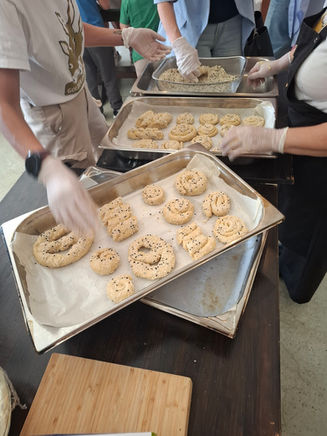Wasteless Kitchen: Kids and Young People ON a Mission

Objectives
The project successfully addressed a critical gap in environmental education by focusing on sustainable management within the kitchen. The initiative was developed by a team of 5 young people aged 18-30, aimed to educate children and youth (ages 6–15), their parents, and groups with intellectual disabilities, developing their critical skills to make informed choices about nutrition and food selection. Emphasis was placed on the origin of food, the effort required for its production, and the environmental impact of every choice. This approach encouraged participants to question the real ecological and social cost involved in their consumption and food processing habits.
The project achieved several key objectives: it fostered social inclusion and active participation by integrating individuals with intellectual disabilities and training them in basic food selection and management. Furthermore, the program cultivated environmental awareness and green skills in all participants, reconnected them with nature, and supported the adoption of a healthier lifestyle. Ultimately, the activities led to the acquisition of practical skills in the kitchen, linking food choices directly to the entire process of cultivation, production, and processing.
Activities
The project, “Wasteless kitchen: Kids and Young People ON a Mission,” successfully designed, prepared, and implemented a comprehensive series of activities and workshops. These events targeted children, young people, parents, and individuals with intellectual disabilities.
The core program covered the following eight key thematic areas:
-
Food waste and its effects on the environment, the economy, and society.
-
The recognition of different foods and their production and processing methods.
-
The circular economy and practical application methods within the kitchen.
-
Visits to farms to learn about animals and the organic food production system.
-
Food preservation practices.
-
The correct choice of food and the body’s functions during food preparation, harvesting, and consumption.
-
Excursions to organic farms, including workshops in nature and activities like picking eggs and vegetables.
-
Promoting conscious food choices and management among children, alongside the daily application of good practices.
In addition to these sessions, cooking workshops were implemented at every event. These featured a demonstration of good practices, followed by a hands-on practical experience for the participants. Afterward, the participants had lunch together and received further information about good practices for managing food in the kitchen.
Photo Album





















